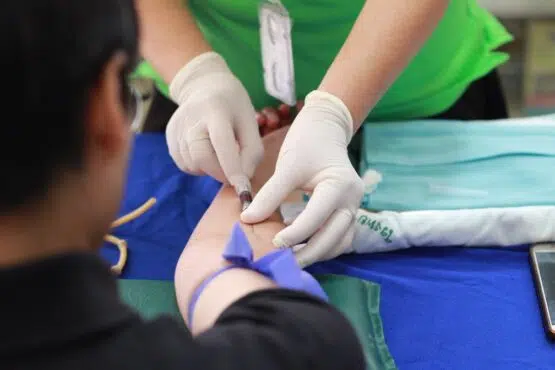Are you seeking a promotion, aspiring to pivot into a specialty area, or want to improve your nursing skills but don’t want to pursue another degree? Does the thought of more opportunities, increased marketability, and even building a stronger foundation in a specialty you love seem attractive? If so, you may want to consider gaining certification. Specialty certifications can add value to your professional career.
With so many nursing certifications available, how do you decide which is best for you? Depending on your career goals and interests, a nursing certification can make you more marketable, increase your earning potential, and become a stepping stone to the career of your dreams.
We compiled a list of the roles you should be watching as you plan for career growth.

5 In-Demand Certifications for Nurses
1. Critical Care Nursing Certification
- Credential: CCRN
- Cost of certification can range from $130-$215
- This certification gives you specialized knowledge that allows you to provide high-quality care for critically ill patients.
- Need to be a practicing Registered Nurse (RN) or Advanced-Practice Registered Nurse (APRN) for at least five years
- Must have worked a minimum of 1,750 hours of direct care of critical care patients as an RN/APRN within two years of applying for the certification.
- Out of the 1,750 hours, 850 hours need to be within one year of applying for certification
- Must have practiced at least 2,000 hours of indirect patient care and 144 of those hours within one year of applying for certification
2. Progressive Care Nursing Certification
- Credential: PCCN
- Cost of certification can range from $195-$300
- This certification gives you specialized competencies and knowledge to provide high-quality care in acutely ill adult patients.
- Need to have a current RN license
- Two options available:
- Two-Year Option: Must practice as an RN for 1,750 hours in direct patient care in an acute patient care environment during the previous two years before applying for certification, and 875 of those hours must be during the year before applying for certification
- Five-Year Option: Must practice as an RN or APRN for a minimum of 2,000 hours for at least five years in direct patient care, and 144 of those hours accrued the previous year prior to applying for certification
3. Wound Care Certification
- Credential: CWOCN, CWON, CWCN, COCN, CCCN, or CFCN
- Cost of certification can range from $395 for one wound specialty to $700 for multiple wound specialties
- This certification gives you the ability to conduct wound assessments, identify abnormal wounds, prevent skin integrity issues, and provide wound care recommendations.
- Need to have a current RN license
- Hold a Bachelors in Nursing (BSN) or higher nursing degree
- Complete an accredited Wound Ostomy Continence (WOC) education program within the last five years, OR
- Must have worked indirect patient care, completed clinical hours, or continuing education classes post-BSN while working as an RN
- 50 of the continuing education classes must apply directly to the specialty certification that you are seeking
- Must have practiced at least 1,500 hours of direct patient care in the last five years, and 375 of those hours within one year of applying for certification
4. Nursing Informatics Certification
- Credential: RN-BC
- Cost of certification can range from $270- $400
- This certification demonstrates leadership and a high level of competence in the informatics field by identifying any technological needs or concerns that can be developed to ensure proper and efficient documentation.
- Hold a Bachelors in Nursing (BSN) or higher nursing degree
- Need to have a current RN license
- Must have worked as a full-time RN for two years
- Must have completed at least 30 hours of continuing education in nursing informatics within three years prior to applying for certification
- Must have worked a minimum of 2,000 hours in informatics within three years of applying for the certification, OR
- Have practiced in informatics a minimum of 1,000 hours and 12 semester hours in graduate-level informatics courses, OR
- Have completed an informatics graduate program with 200 supervised clinical hours prior to applying for certification
5. School Nursing Certification
- Credential: NCSN
- Cost of certification can range from $300-$400
- Depending on the state, this certification may be a requirement to work as a School Nurse.
- This certification demonstrates that you can recognize public health concerns, address students’ physical and psychosocial needs according to their developmental stages and that you are familiar with the school, state, and education policies pertaining to students’ health.
- Need to have a current RN license
- Provide transcripts of BSN completion
- Must have worked at least 1,000 hours in the last three years prior to applying for certification of direct or indirect patient clinical practice
Whatever nursing certification you decide to obtain, a certification provides the expertise and knowledge needed to provide the highest level of evidence-based care, competence, and specialization to ensure positive patient outcomes.
Elevate your career by exploring the latest job openings from top staffing partners on Vivian Health today.










Aren’t there any certifications available to LPN/LVN nurses?
Hello Tracey and thanks for reaching out! Yes, there are some specialty certifications for LPN/LVN nurses. This page just covered the 5 nursing certifications that were in high demand at the time of writing. While none of these were LPN/LVN certifications, this could change in the next update based on current trends. Until then, you can find a few LPN/LVN credentials on our certifications database here https://www.vivian.com/certifications/. We routinely add new pages to this database and plan to include some additional LPN certifications soon.
Any recommendations for study materials leading to surgical first assistant? Thanks. CD
Hello Christopher, and thanks for reaching out. Numerous study materials exist for surgical first assistants, but the exact type you’re looking for differs based on whether you’re seeking materials for allied health first assistants or RN first assistants and whether you’re looking for study materials for the corresponding certification exam.
For the Certified Surgical First Assistant (CSFA) for allied health professionals, please see Vivian’s CSFA page found here: https://www.vivian.com/certifications/csfa/. Also, the National Board of Surgical Technology and Surgical Assisting offers exam prep information on its website here: https://www.nbstsa.org/csfa-exam-prep and the National Surgical Assistant Association has a Certified Surgical Assistant Exam Study Guide online, but it’s from 2018, found here: https://www.csaexam.com/wp-content/uploads/2018/01/CSA-Exam-STUDY-GUIDE-2018.pdf.
For the Certified Registered Nurse First Assistant (CRNFA), please see Vivian’s CRNFA page found here: https://www.vivian.com/certifications/crnfa/. Also, the Association of periOperative Registered Nurses offers RN First Assistant resources online here: https://www.aorn.org/guidelines/clinical-resources/rn-first-assistant-resources.
We wish you the best of luck in pursuing all your professional goals!
Great article